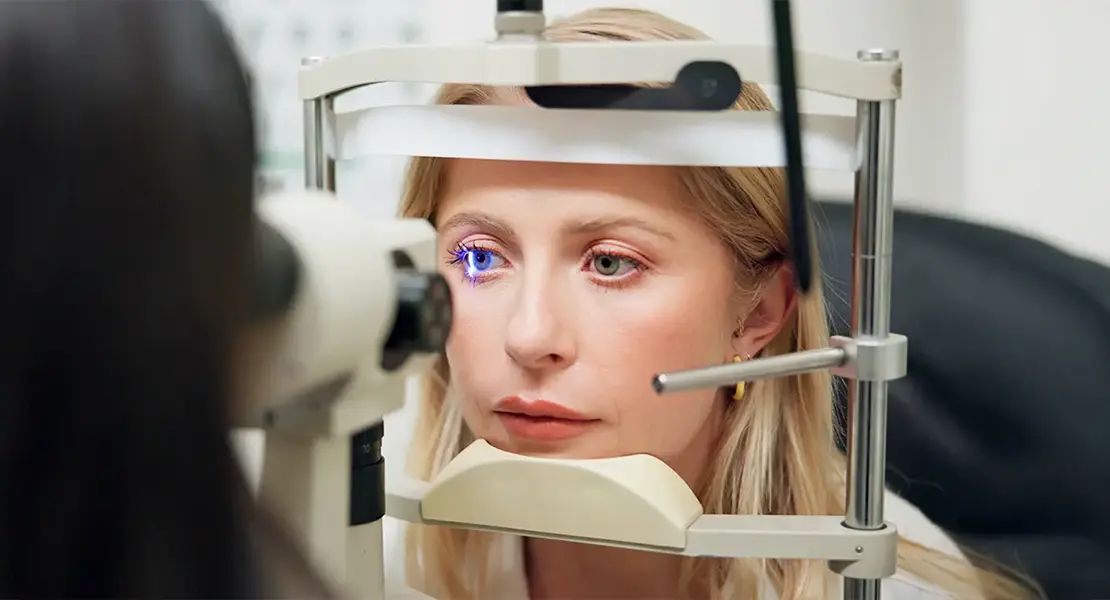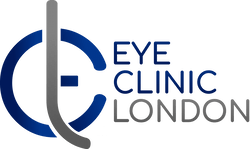What Is the Best Age for ICL Surgery?

If you’ve been researching permanent vision correction, you’ve likely come across ICL surgery. Unlike LASIK, which reshapes your cornea, ICL surgery involves placing a tiny lens inside your eye to correct your vision. It’s an excellent option for many people, but timing is key.
You might be wondering: What is the best age for ICL surgery? The truth is, there isn’t a single number that works for everyone. Age is important, but so are factors like prescription stability, overall eye health, and lifestyle.
In this article, I’ll guide you through the ideal age ranges for ICL surgery, explain how younger and older patients are assessed differently, and help you understand whether now could be the right time for you.
Understanding ICL Surgery
ICL, or Implantable Collamer Lens surgery, is a type of vision correction that might be perfect for you if you’re looking for an alternative to traditional LASIK. In this procedure, a custom-made lens is carefully implanted inside your eye, positioned between your iris and your natural lens. This lens works together with your eye’s existing structures to bend light correctly, helping you see clearly without relying on glasses or contact lenses.
One of the key benefits of ICL surgery is that it doesn’t involve removing any corneal tissue, which is a major difference from LASIK. This makes it a great option if you have thinner corneas or if your prescription is higher than what LASIK can safely correct. Another advantage is that the procedure is reversible. If there’s ever a need, the lens can be removed or replaced, giving you added peace of mind.
ICL can be life-changing, especially for people who have struggled with strong prescriptions or haven’t been able to undergo other types of refractive surgery. If you’ve ever wished for a solution that works with your eyes rather than altering their natural structure, this might be an option worth exploring with your ophthalmologist.
Why Age Matters in ICL Surgery

Your age influences several important factors in deciding whether ICL surgery is right for you:
- Prescription stability: Younger people often experience prescription changes, which makes surgery less predictable.
- Eye health: Certain age-related conditions may reduce suitability.
- Healing ability: Younger eyes typically heal faster, while older eyes may take longer.
- Lifestyle needs: The age you are may determine how much freedom you want from glasses or contact lenses.
This is why most surgeons recommend a certain age window as the “sweet spot” for ICL.
The Ideal Age Range for ICL Surgery
If you’re considering ICL surgery, you might be wondering whether your age plays a role in how successful the procedure can be. Generally, the recommended age range for ICL surgery is between 21 and 45 years old, and there’s a good reason for that.
If you’re under 21, your eyes are likely still changing. Your prescription might fluctuate, and undergoing surgery too early could mean your vision changes again later, which could affect the long-term results.
Between the ages of 21 and 30, most people have stable prescriptions, making this an ideal time to consider ICL surgery. At this stage, your eyes usually heal quickly, and you can enjoy the benefits of clear vision for many decades ahead. It’s often the perfect window if you’re looking to reduce or even eliminate your dependence on glasses or contact lenses.
From 30 to 45, ICL surgery is still very effective. Your eyes may start to experience early changes such as presbyopia, which is when it becomes harder to focus on close objects, typically in your late 30s or early 40s. Even so, many people in this age range achieve excellent results and enjoy years of improved vision.
For those over 45, ICL surgery is still an option, but you and your eye specialist may need to consider additional factors. Cataracts, dry eyes, or other age-related eye changes could affect whether the procedure is the right fit for you. Your ophthalmologist can guide you through these considerations to determine the best approach for your eyes.
ICL Surgery in Your 20s
If you’re in your early 20s, the idea of ditching your glasses or contact lenses can be really exciting. However, most eye surgeons will recommend waiting until your prescription has been stable for at least 12 to 18 months before undergoing ICL surgery. This ensures the procedure delivers the best long-term results and reduces the chance of your vision changing afterward.
For many people in their mid-to-late 20s, ICL surgery can be an excellent option. This is usually the age when your prescription has stabilised, and your eyes are healthy enough to handle the procedure safely. It’s also the perfect time if you’re looking for long-term freedom from glasses or contact lenses and want to enjoy clear vision during some of your most active years.
The main advantages of having ICL surgery in your 20s are significant. Your eyes tend to heal quickly, and you can experience the benefits of sharper vision during college, your early career, and everyday activities without the hassle of corrective lenses. Additionally, choosing surgery at this stage gives you decades of potential visual freedom ahead, which is something many patients really value.
Of course, your suitability will also depend on other factors, such as overall eye health, corneal thickness, and whether you have any underlying conditions. Your ophthalmologist can help assess your eyes and determine if now is the right time for you to take the next step toward clear vision.
ICL Surgery in Your 30s

For many people, their 30s are the ideal time to consider ICL surgery. By this stage, your prescription is usually stable, and the likelihood of developing age-related eye conditions is still relatively low, making it a great window to achieve long-term visual improvement.
Having ICL surgery in your 30s comes with several benefits. First, you can enjoy long-lasting results that cover decades of your daily life, from work to travel to family activities. Your eyes also tend to respond well to the procedure, with quick healing and minimal downtime, which means you can get back to your normal routine without much disruption.
Another advantage is that clearer vision at this stage can make everyday tasks easier and more enjoyable. Whether you’re managing a busy career, spending time with family, or planning adventures, you’ll likely notice a significant difference in your overall quality of life once you no longer rely on glasses or contact lenses.
The main consideration in your 30s is presbyopia, the natural age-related change that makes it harder to focus on close objects. This usually starts in your early to mid-40s, so while ICL can dramatically improve your distance vision, it won’t prevent the need for reading glasses later on.
Even so, many people find that ICL surgery in their 30s strikes the perfect balance: stable prescriptions, strong healing potential, and the chance to enjoy clear vision during some of their busiest and most active years.
ICL Surgery in Your 40s
If you’re in your 40s, you might be wondering whether ICL surgery is still a good option for you. The good news is that it absolutely can be, though there are a few factors to consider. By this stage, your eyes are naturally starting to change. Presbyopia the difficulty focusing on close objects often begins in your early to mid-40s. This means that even after ICL surgery, you might still need reading glasses for tasks like reading or using your phone.
Despite this, ICL can still offer you significant benefits. It can free you from relying on distance glasses or contact lenses, which can be a huge convenience if you’re active, busy, or simply want clearer vision for driving, work, or travel. Many people in their 40s choose ICL precisely because it provides reliable, long-lasting correction for distance vision, even if reading glasses are still needed.
Another advantage at this age is that ICL can be a safer alternative to LASIK for those who aren’t ideal candidates perhaps due to thinner corneas or higher prescriptions. Your ophthalmologist can assess your eyes and help you understand what to expect, ensuring the procedure aligns with your visual goals and lifestyle.
Overall, while your 40s come with some natural changes in near vision, ICL surgery can still offer you freedom from distance corrective lenses and help you enjoy sharper, more comfortable vision in your daily life.
ICL Surgery After 45
After 45, ICL can still be performed, but careful assessment is needed. Factors that affect suitability include:
- Cataracts: These become more common with age and may eventually need surgery.
- Glaucoma: Elevated eye pressure may complicate things.
- Healing: Recovery can take longer compared to younger patients.
In some cases, refractive lens exchange (RLE) may be recommended instead.
Can Teenagers Have ICL Surgery?
ICL is rarely performed on anyone under 21. That’s because:
- The eyes are still developing.
- Prescriptions are usually unstable.
- Results may not last if vision continues changing.
For teenagers, glasses or contact lenses are the safer option until their prescription stabilises.
Deciding If the Timing Is Right for You
While age is an important factor when considering ICL surgery, it’s far from the only thing that matters. You’ll also want to think about several other key aspects of your eye health and lifestyle to determine if now is the right time for you.
First, consider your prescription. Has it been stable for at least a year? If your vision is still changing, it’s usually best to wait until it stabilises to ensure the results of ICL are long-lasting.
Next, think about your corneas. If you have thin corneas, LASIK may not be a safe option for you. This is where ICL can be a game-changer, as it doesn’t require removing corneal tissue and can still provide excellent vision correction.
Your lifestyle is another important consideration. Do glasses or contact lenses get in the way of your work, hobbies, or travel plans? If you’re tired of dealing with lenses every day, ICL can offer the convenience of clearer vision without them.
Finally, take a look at your overall eye health. Are your eyes free from conditions like cataracts, glaucoma, or other issues that could affect surgery? A thorough check-up with your ophthalmologist can help you identify any potential concerns and ensure the procedure is safe for you.
If you can answer “yes” to most of these questions, there’s a strong chance that ICL surgery could be a good fit for you. Talking with an experienced eye specialist can help you make the final decision and plan the procedure at a time that works best for your eyes and your lifestyle.
Benefits of Having ICL at the Right Age
When done at the right time, ICL surgery can:
- Give you decades of freedom from glasses.
- Provide sharp night vision compared to some laser procedures.
- Avoid corneal thinning issues linked with LASIK.
- Offer reversibility if your needs change later.
Timing your treatment well means enjoying the maximum benefits with minimal risks.
Why Older Patients Are Assessed Differently
If you’re considering ICL surgery later in life, it’s important to know that being older doesn’t automatically rule you out. However, your eyes may require a more detailed assessment to ensure the procedure will give you the best possible results.
Surgeons will pay close attention to several factors. They’ll check for cataracts, which can affect your vision and may need to be addressed before or alongside ICL surgery. Higher eye pressure is another consideration, as it can increase the risk of glaucoma and affect long-term eye health. Your healing ability is also evaluated, since older eyes may take slightly longer to recover.
Another important factor is the likelihood of needing reading glasses soon due to presbyopia, the age-related difficulty in focusing on close objects. While ICL can correct distance vision, it won’t prevent the need for near-vision aids.
By carefully assessing these factors, your surgeon can ensure that ICL surgery still delivers value and long-lasting results, giving you clearer vision while taking your unique eye health into account. This thorough approach helps you make an informed decision and ensures that the procedure aligns with your visual goals and lifestyle.
Professional Assessment Is Key
While age guidelines and general recommendations are useful, the only way to know for certain whether ICL surgery is right for you is through a professional consultation. During this appointment, a specialist will carry out detailed eye tests to assess your unique situation.
They’ll check how stable your prescription is, ensuring your vision isn’t still changing. They’ll also evaluate the health of your cornea and natural lens, which are critical factors in determining whether ICL is safe and effective for you. In addition, the specialist will compare ICL to other vision correction options, helping you understand which approach is best suited to your eyes and lifestyle.
If you’re thinking about ICL surgery in London, booking a consultation is the first step toward personalised guidance. It allows you to get expert advice tailored to your eyes, discuss any concerns you may have, and make an informed decision about whether now is the right time for you to take this step toward clearer vision.
FAQs:
- What is ICL surgery?
ICL, or Implantable Collamer Lens surgery, is a vision correction procedure where a small, custom-made lens is implanted inside the eye, positioned between the iris and the natural lens. Unlike LASIK, it does not remove any corneal tissue and is reversible if necessary. The lens works alongside the eye’s natural structures to bend light correctly, allowing you to see clearly without relying on glasses or contact lenses. - How is ICL different from LASIK?
While LASIK reshapes the cornea to correct vision, which can thin corneal tissue and may not be suitable for high prescriptions, ICL surgery places a lens inside the eye without altering the cornea. This makes it a safer option for people with thin corneas or strong prescriptions, and it offers the added benefit of being reversible if future adjustments are needed. - What is the best age for ICL surgery?
The optimal age range for ICL surgery is generally considered to be between 21 and 45. In your 20s and 30s, prescriptions are usually stable, eyes heal quickly, and the results can last for decades. For patients in their 40s, ICL surgery can still be highly effective, but age-related factors such as presbyopia or early cataracts need to be taken into account. People under 21 are typically advised to wait until their vision has stabilised. - Can teenagers have ICL surgery?
ICL surgery is rarely performed on teenagers under 21 because their eyes are still developing and their prescriptions may continue to change. Performing surgery too early could mean that vision changes later, affecting long-term outcomes. Glasses or contact lenses remain the safest choice until the prescription stabilises. - Does ICL surgery prevent the need for reading glasses?
ICL primarily corrects distance vision and does not prevent presbyopia, which is the age-related difficulty in focusing on close objects. Patients over 40 may still require reading glasses for tasks such as reading or using a phone, even after ICL surgery. Your ophthalmologist can discuss options, such as monovision or combining ICL with other treatments, to address near vision needs. - How long does it take to recover from ICL surgery?
Recovery from ICL surgery is typically quick. Most patients notice clearer vision within a day or two, although full visual stabilisation can take several weeks. Unlike LASIK, there is minimal discomfort, and most people can resume normal activities quickly. Healing time may be slightly longer for older patients. - Is ICL surgery reversible?
Yes, one of the main advantages of ICL surgery is that the lens can be removed or replaced if necessary. This reversibility allows flexibility in case your vision changes or other eye conditions develop later in life, providing added peace of mind. - What factors determine if I am suitable for ICL?
Suitability for ICL surgery depends on multiple factors, including prescription stability over at least 12 to 18 months, corneal thickness and overall eye health, and the absence of conditions such as cataracts or glaucoma. A thorough assessment by an ophthalmologist is essential to ensure the procedure is safe and effective for your specific eyes. - Are there risks associated with ICL surgery?
Although ICL surgery is generally considered safe, there are potential risks like increased intraocular pressure, infection or inflammation, cataract formation in rare cases, and night vision issues such as glare or halos. Your surgeon will discuss these risks in detail, personalised to your eye health and overall suitability. - How do I know if now is the right time for ICL surgery?
Determining the right timing for ICL surgery depends on your age, prescription stability, lifestyle needs, and overall eye health. If your vision has been stable for over a year, you have no contraindications, and glasses or contact lenses are inconvenient for your daily activities, it may be an appropriate time to consider the procedure. A professional consultation with an ophthalmologist is the best way to get personalised guidance and plan the surgery according to your eyes and visual goals.
Final Thoughts: Is ICL Right for You?
ICL surgery can be a truly life-changing option, offering the freedom of clear vision without relying on glasses or contact lenses. That said, it’s not a one-size-fits-all solution. Your age, prescription stability, corneal health, and any existing eye conditions all play a key role in determining whether ICL is the safest and most effective choice for you.
Taking the time to understand these factors helps you make an informed decision and ensures the best possible outcome. If you want to explore the most suitable options for ICL surgery in London, you can contact us at Eye Clinic London to schedule a consultation and receive personalised advice from our expert team. This assessment allows your eyes to be thoroughly evaluated and ensures guidance tailored to your unique vision needs.
References:
- Allan, B. (2025). Am I too old for ICL implantation? Retrieved from https://www.allan.vu/u/Am-I-too-old-for-ICL-implantation
- UPMC Vision Institute. (2024). What is Implantable Collamer Lens (ICL) Surgery? Retrieved from https://share.upmc.com/2024/01/implantable-collamer-lens/
- American Refractive Surgery Council. (2025). Am I a Good Candidate for ICLs? Retrieved from https://americanrefractivesurgerycouncil.org/am-i-a-good-candidate-for-icls/
- Memorial Eye Institute. (2025). Implantable Collamer Lenses – Harrisburg. Retrieved from https://memorialeye.com/implantable-collamer-lens-icl/
- UM Kellogg Eye Center. (2025). Phakic Intraocular Lenses (IOLs) or Implantable Contact Lenses. Retrieved from https://www.umkelloggeye.org/conditions-treatments/refractive-surgery/phakic-intraocular-lenses-iols

